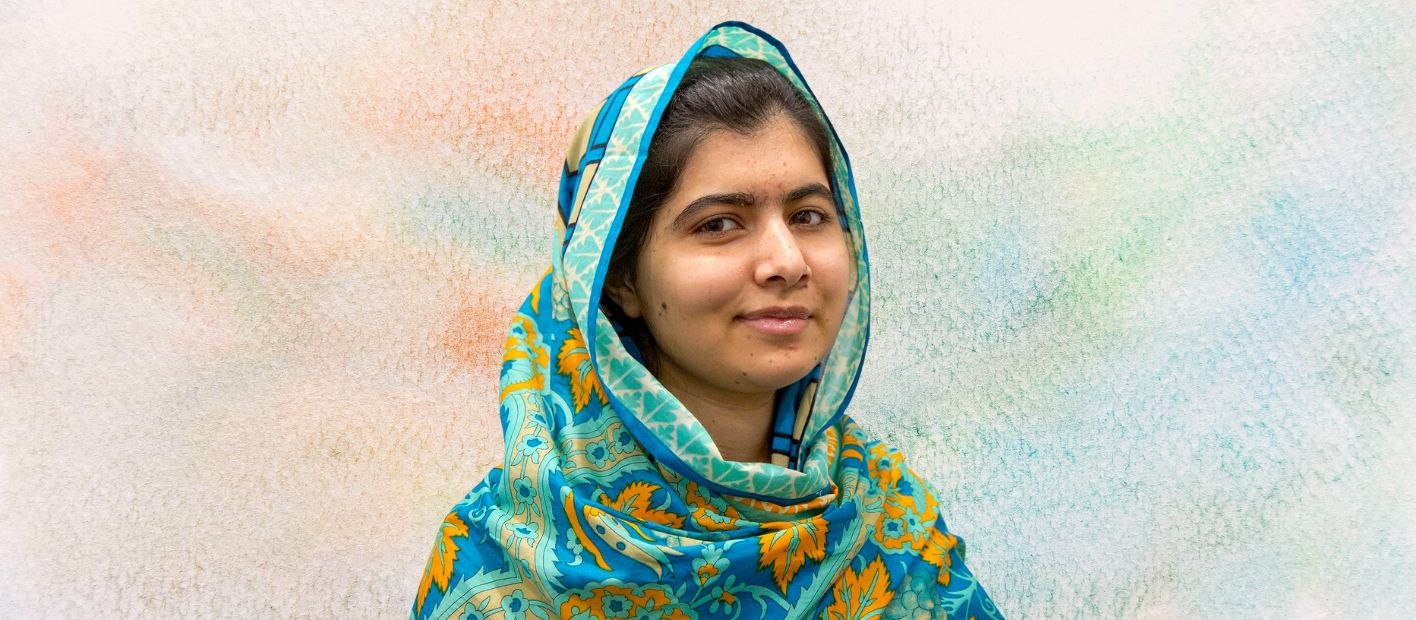Malala Yousafzai
A Voice for Education and Equality
Introduction
Meet Malala Yousafzai
Malala Yousafzai is a name that has become synonymous with courage, education, and the relentless fight for equality. Born in Mingora, Pakistan, in 1997, Malala’s extraordinary journey has made her a global icon for her advocacy of girls’ education and human rights. In this blog, we explore the remarkable life of Malala Yousafzai and her unwavering dedication to creating a more equitable world.
Early Life in Swat Valley
Malala spent her early years in the picturesque Swat Valley of Pakistan, a region known for its stunning landscapes but also for the rise of the Taliban, which sought to impose strict rules and restrictions, particularly on girls’ education. Growing up in this challenging environment would profoundly shape Malala’s destiny.
The Attack and the Birth of an Activist
In 2012, Malala became the target of a Taliban assassination attempt while riding a bus home from school. The brutal attack left her severely wounded but also ignited a global movement in support of her and girls’ education. It marked the beginning of Malala’s journey as an activist.
The Fight for Education
Malala’s Advocacy for Girls’ Education
Malala’s voice became a beacon of hope for millions of girls who were denied access to education due to cultural, social, or political barriers. She used her global platform to highlight the importance of education as a fundamental right and a catalyst for social change.
The Malala Fund
In 2013, Malala co-founded the Malala Fund, a non-profit organization dedicated to advocating for girls’ education around the world. The organization works to provide quality education, especially for girls in vulnerable and underserved communities.
Global Impact and Recognition
Malala’s advocacy has had a profound impact on the world stage. Her efforts have garnered her numerous awards and recognitions, including being named one of Time magazine’s Most Influential People and receiving honorary Canadian citizenship.
Overcoming Adversity
Recovery and Resilience
Malala’s remarkable recovery from the near-fatal attack was a testament to her resilience. She underwent extensive medical treatment and rehabilitation, and her determination to continue her activism remained unshaken.
Malala’s Continuing Education
In 2013, Malala and her family relocated to Birmingham, England, where she continued her education and completed her high school studies. She recognized that education was not only her right but also her greatest weapon in the fight for change.
Writing “I Am Malala”
In 2013, Malala released her memoir, “I Am Malala: The Girl Who Stood Up for Education and Was Shot by the Taliban.” The book provided a deeper insight into her life, her passion for education, and her commitment to advocating for the rights of girls everywhere.
Nobel Peace Prize Laureate
A Historic Award
In 2014, Malala was awarded the Nobel Peace Prize, becoming the youngest recipient in history at the age of 17. The prestigious award recognized her exceptional efforts to promote girls’ education and her fearless advocacy for peace.
Co-recipient with Kailash Satyarthi
Malala shared the Nobel Peace Prize with Kailash Satyarthi, an Indian child rights activist. Their joint recognition symbolized the importance of the global struggle for children’s rights and education.
Expanding Global Influence
The Nobel Peace Prize elevated Malala’s influence on the international stage. She continued to use her platform to meet with world leaders, advocate for policy changes, and rally support for girls’ education.
The Ongoing Journey
Malala’s University Education
Malala pursued higher education at the University of Oxford, studying Philosophy, Politics, and Economics. Her commitment to education remained unwavering, and she continued her advocacy while balancing the demands of university life.
Commitment to Advocacy
Malala has continued her work as a global advocate for education and equality. She speaks at major international events, meets with world leaders, and participates in initiatives that further her mission.
Inspirational Legacy
Malala Yousafzai’s life and work have inspired a new generation of activists and advocates for education and gender equality. Her story serves as a powerful reminder that one person’s voice and determination can spark change on a global scale.
Conclusion
Malala Yousafzai’s Enduring Impact
Malala Yousafzai’s journey from a young girl in Pakistan to a global advocate for education and equality is a testament to the power of resilience, courage, and unwavering commitment to a just cause.
The Global Struggle for Education and Equality
Malala’s story is a part of the broader global struggle for education and gender equality. Her work has shed light on the challenges many girls face in accessing education and has catalysed efforts to overcome these barriers.
A Beacon of Hope
Malala Yousafzai’s life and legacy continue to shine as a beacon of hope for those fighting for a world where every girl has the opportunity to receive an education, and where the power of one person’s voice can inspire meaningful change.






I really like your blog.. very nice colors & theme.
Diid you createe this website yourself or did you hire someone to
do it for you? Plz respond as I’mlooking to construct my own blog and would like to
know where u got this from. many thanks https://Tri1LS.Webflow.io/
yes